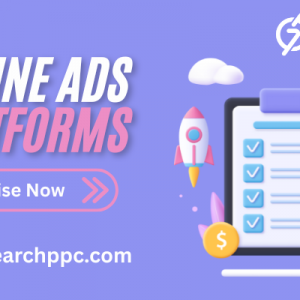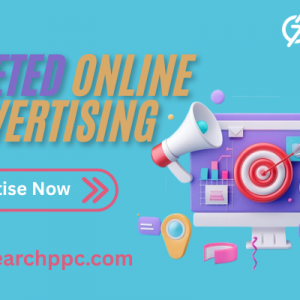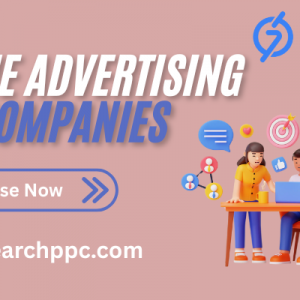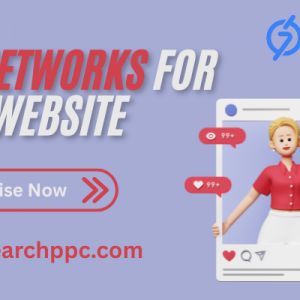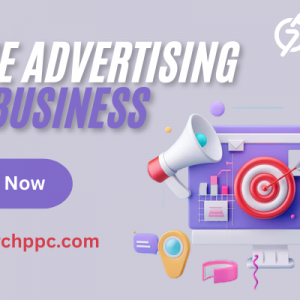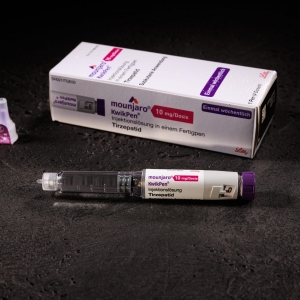In an era where consumers spend more time online than ever before, launching an online advertising business offers immense potential. However, succeeding in this competitive landscape requires more than basic knowledge of PPC platforms and ad creation. You need a structured approach—a step-by-step plan—to guide your journey from initial concept to a thriving agency. In this comprehensive guide, we’ll walk you through every phase: defining your niche, setting up the foundation, acquiring clients, delivering results, scaling operations, and marketing your agency. By the end, you’ll be equipped with actionable insights and best practices to build and grow an online advertising business that stands out among online advertising companies.
Define Your Niche and Service Offering
Identify Your Ideal Client
Every successful online advertising business starts with a clear understanding of who you serve. Rather than being a generalist, focus on industries where you have expertise—e-commerce, B2B SaaS, healthcare, local services, or other verticals. Specializing allows you to tailor your PPC advertising strategies, speak your clients’ language, and differentiate yourself from generic online ad providers.
Craft Your Core Services
Based on your niche, define a suite of services that align with client needs. Typical offerings include:
- Search advertising on platforms like Google Ads and Bing Ads (a leading PPC platform).
- Social Media Advertising on Facebook, Instagram, LinkedIn, and Twitter.
- Display & Remarketing through Ad Networks such as Google Display Network and programmatic platforms.
- Native advertising via networks like Taboola and Outbrain for seamless advertising for site integration.
- Analytics & Reporting using tools like Google Analytics, Data Studio, and custom dashboards.
Package these services into tiered plans—Starter, Growth, and Premium—so prospects can quickly understand your offerings and pricing.
Establish a Solid Business Foundation
Legal and Financial Setup
- Business Entity: Register as an LLC or corporation to protect personal assets.
- Banking & Accounting: Open a dedicated business bank account and choose accounting software (QuickBooks, Xero) to track revenue, expenses, and payroll.
Branding and Online Presence
- Website Development: Build a professional website optimized for Online Advertising keywords, showcasing your expertise, case studies, and client testimonials.
- Content Hub: Maintain a blog with posts on PPC Platform comparisons, PPC Network best practices, and online ad tips to attract organic traffic.
Technology Stack
Equip your agency with essential tools:
- PPC Platform Accounts: Google Ads, Bing Ads, and 7Search PPC.
- Analytics Tools: Google Analytics, SEMrush, and Ahrefs for keyword research and competitive analysis.
- Reporting Dashboards: Data Studio, Tableau, or Klipfolio for real-time performance tracking.
- Project Management: Asana, Trello, or Monday.com to manage tasks, deadlines, and collaboration.
Acquire Your First Clients
Networking and Referrals
Leverage personal and professional networks to spread the word. Offer a referral incentive—discounts or service upgrades—to encourage word-of-mouth recommendations.
Content Marketing and SEO
Publish high-value content targeting secondary keywords such as online advertising companies, PPC network, and advertising for site. Optimize posts for SEO to rank in search results and drive inbound leads.
Cold Outreach and Audits
Identify potential clients whose online ads could be improved. Craft personalized emails offering a free audit of their current campaigns, highlighting quick-win recommendations.
Partnerships
Collaborate with web development agencies, graphic designers, and marketing consultants. Offer white-label services or mutual referrals to broaden your client base.
Onboarding and Campaign Setup
Discovery and Goal Setting
- Conduct in-depth discovery calls to understand business objectives, target audience, and past performance.
- Define clear KPIs: cost per acquisition (CPA), return on ad spend (ROAS), click-through rate (CTR), and lifetime value (LTV).
Campaign Strategy
- Keyword Research: Use Google Keyword Planner, Ahrefs, and SEMrush to identify high-intent terms.
- Audience Segmentation: Create custom audiences based on demographics, interests, and behavior.
- Ad Copy and Creative: Write compelling headlines, descriptions, and design visually engaging creatives for online ads.
- Landing Page Optimization: Ensure relevance between ads and landing pages, with clear CTAs and fast load times.
Tracking and Setup
- Implement conversion tracking with Google Tag Manager and UTM parameters.
- Configure remarketing lists for site visitors who didn’t convert.
Launch, Monitor, and Optimize
Initial Launch
Start campaigns with conservative budgets and broad targeting to gather data. Monitor performance closely for the first 7–10 days.
Ongoing Optimization
- Bid Adjustments: Increase bids on high-performing keywords and pause underperformers.
- A/B Testing: Continuously test ad copy, creatives, and landing pages.
- Budget Reallocation: Shift spend toward channels and campaigns delivering the best ROI.
- Quality Score Improvement: Enhance ad relevance, expected CTR, and landing page experience to reduce CPC.
Reporting and Communication
Deliver weekly or bi-weekly reports with insights on impressions, clicks, conversions, CPA, and ROAS. Use visual dashboards and provide strategic recommendations for continuous improvement.
Scaling Your Agency
Hiring and Team Structure
- PPC Specialists: Focused on campaign management and optimization.
- Copywriters and Designers: Craft persuasive ad copy and visuals.
- Account Managers: Handle client communication and strategy alignment.
Develop standard operating procedures (SOPs) and training materials to ensure consistency across team members.
Automation and Tools
- Bid Management Software: Tools like WordStream, Kenshoo, or Marin to automate bidding.
- Reporting Automation: Set up automated dashboards in Data Studio or Klipfolio.
- CRM Integration: Use HubSpot, Salesforce, or Pipedrive to manage leads and client interactions.
Service Expansion
Once your core services are stable, consider adding:
- Programmatic Advertising: Real-time bidding across display, video, and native inventory.
- Email Marketing: Sponsored newsletters and drip campaigns.
- SEO Services: Organic search optimization to complement paid efforts.
Financial Management and Pricing Models
Pricing Strategies
- Retainer Model: Fixed monthly fee based on service package.
- Performance-Based: Percentage of ad spend (10–20%) or percentage of revenue generated.
- Hybrid Model: Base retainer plus performance incentives.
Budget Recommendations
Advise clients to allocate at least 10–15% of revenue to PPC advertising. Diversify budgets across PPC platforms, including search, social, display, and native networks.
Profitability Tracking
Monitor client acquisition cost (CAC) and lifetime value (LTV). Regularly review margins by service line and adjust pricing or resource allocation as needed.
Marketing Your Agency
Thought Leadership
Host webinars, publish white papers, and speak at industry events. Share insights on the latest trends in online advertising and ad networks.
SEO and Paid Promotion
Optimize your site for keywords like PPC Platform, Online Advertising Companies, and PPC Network. Run your own online ad campaigns to demonstrate expertise and attract leads.
Social Proof and Testimonials
Showcase client success stories, case studies, and testimonials prominently on your website and marketing materials.
Staying Ahead: Trends and Innovations
AI and Machine Learning
Leverage AI-driven bidding strategies and automated creative generation to improve performance and efficiency.
Privacy and First-Party Data
Adapt to evolving privacy regulations by focusing on first-party data collection, CRM integration, and cookieless targeting solutions.
Emerging Channels
Explore advertising on platforms like TikTok, podcasts, connected TV (CTV), and in-game ads to reach new audiences.
Conclusion:
Incorporating a variety of PPC platforms is crucial for a robust online advertising business. Among these, 7Search PPC offers unique advantages that can complement larger networks.
Pros of 7Search PPC
- Competitive CPC Rates: Often lower cost-per-click than major platforms, helping clients stretch their budgets further.
- Global Reach: Access an international network of publishers, ideal for clients with multi-country targeting needs.
- Flexible Targeting: Campaigns can be tailored by country, device, and keyword match types.
- Dedicated Support: Personalized account management and optimization assistance for agencies.
Cons of 7Search PPC
- Smaller Publisher Base: Limited reach compared to Google Ads and Facebook Ads may require supplementary channels for full coverage.
- Analytics Depth: Reporting tools are robust but may lack the granular insights of larger online advertising companies.
- Learning Curve: New users might need time to familiarize themselves with the platform’s interface and best practices.
By integrating 7Search PPC alongside search, social, display, and native channels, your agency can offer diversified strategies that drive sustainable growth for clients. Implement this step-by-step plan, remain agile, and continuously refine your processes to thrive in the dynamic world of online advertising.
Frequently Asked Questions (FAQs)
What is a PPC platform?
Ans: A PPC platform is an advertising system where advertisers bid on keywords or placements and pay when users click their ads. Leading platforms include Google Ads, Bing Ads, and 7Search PPC.
How do I price PPC services?
Ans: Pricing can be based on monthly retainers ($1,000–$5,000+), performance fees (10–20% of ad spend), or hybrid models combining both.
What’s the difference between an ad network and a PPC network?
Ans: An ad network aggregates display and native ad inventory across multiple sites, while a PPC network focuses on search-based, pay-per-click campaigns.
How do I measure success in online advertising?
Ans: Key metrics include CTR (click-through rate), CPC (cost per click), CPA (cost per acquisition), ROAS (return on ad spend), and LTV (lifetime value).
Is 7Search PPC suitable for small businesses?
Ans: Yes—its lower CPC rates and global reach make it an attractive option for budget-conscious small businesses seeking efficient PPC advertising solutions.
Related Post
Digital Advertising Platforms, Online Advertising Business, Best Online Advertising, Top Ad Networks, Targeted Online Advertising, Ott Advertising Platforms, Online Advertising Agency, Advertisement For Business, Online Ads Platform


